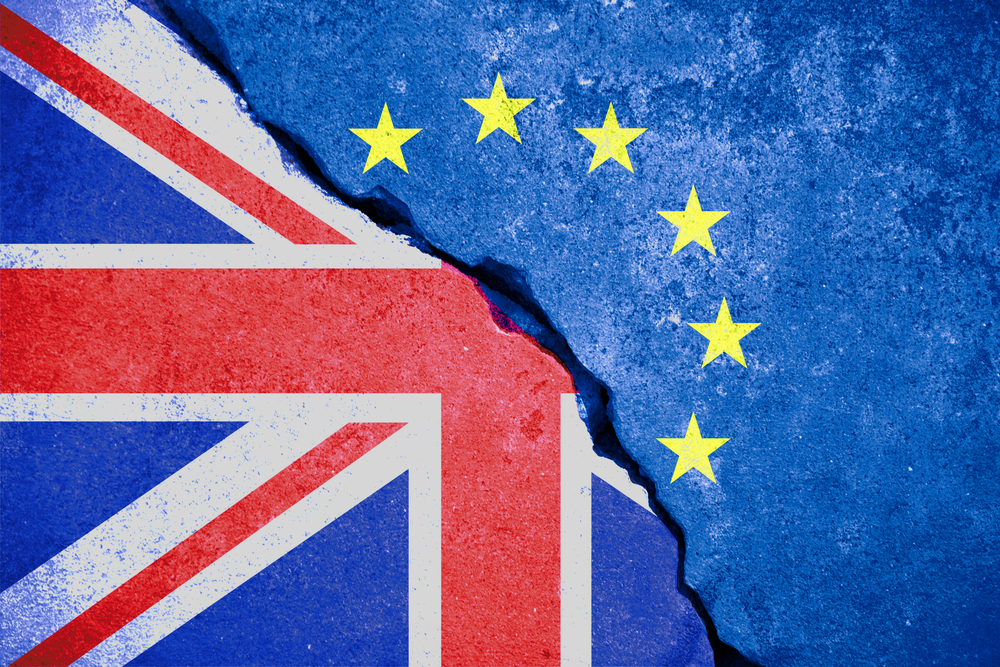Welcome to the August 2020 Brexit Bulletin. While we hope you’ve managed to take a holiday, we’ve been busy as usual pulling together all the relevant Brexit information. In this month’s edition, plenty on Northern Ireland, plus trade with non-EU countries.
Remember, you can add colleagues to your mailing list by logging into the members' area of the website or contacting your Regional Director.
In this month’s Bulletin:
1. Brexit Update
2. Readiness Research
3. Northern Ireland Protocol Update
4. Trader Support Service (TSS)
5. Brexit’s Impact on EU Stability
6. Exporting to the Rest of the World
7. Latest Publications
1. Brexit Update
While much of the country seems to be on holiday, the UK’s negotiating team continued their seventh round of talks with their EU opposites in Brussels. Despite the Prime Minister’s high hopes for a deal by the end of July, none has materialised. In fact, this month Michel Barnier said trade talks were “going backwards”, and that there had been “no progress whatsoever on the issues that matter”.
Instead, the deadline’s now considered to be the end of October, to still allow time for member states to ratify the agreement before the end of the Transition Period in December. As well as hoping July would see a resolution, the PM has also previously said he didn’t want negotiations to drag on past September.
A potential solution the ‘level playing field’ problem is the set up of an independent body to oversee state aid rules – if this could be agreed it would be a big step towards forging an agreement within the remaining time, leaving details such as the body’s powers to be thrashed out later.
Round 8 of negotiations begin on 7 September and run until 11 September in London. There will then be meetings as necessary, and specialised sessions, in the second half of September. Round 9 of negotiations will begin in Brussels at the end of September and cut off on 2 October.
Meanwhile, a PowerPoint presentation leaked from Government shows preparations for water, food and fuel shortages, power cuts and public unrest if a second wave of COVID-19 coincides with no-deal on January 1.
In good news, it’s expected a UK-Japan trade deal might be announced in the coming days, following reports earlier in the month that disagreements around Stilton tariffs had driven a wedge between the two sides.
2. Readiness Research
The Confederation of British Industry found that three in four businesses are concerned about a further economic shock arising from a non-negotiated exit from the EU.
21% of firms say their level of preparedness for the end of the Transition Period has declined since January, while 57% of businesses have been unable to progress their plans.
Similarly, Descartes Systems Group’s research into businesses that trade with the EU found that:
- Two thirds of businesses have had their Brexit preparations disrupted by COVID-19.
- Less than a quarter (23%) have high confidence in their ability to cope with the extra administrative burden of Brexit.
- Two thirds (67%) of large firms are very or extremely concerned about longer delays in their supply chain impacting the business post-Brexit.
- Fewer than one in five (18%) of UK businesses are prepared for a ‘no-deal’ Brexit.
- Almost three quarters (72%) are concerned about the customs brokerage market’s capacity post-Brexit.
- Two fifths (40%) are concerned about customs declarations impacting their business post-Brexit.
3. Northern Ireland Protocol Update
The Government has, this month, issued further guidance for businesses moving goods under the Northern Ireland Protocol. Due to take effect at the end of the Transition Period, the Protocol is the practical solution designed to avoid a hard border between Northern Ireland and the Republic.
Exporting NI to GB
Moving goods from Northern Ireland to Great Britain should take place as it does now – there will be no additional process, paperwork, or restrictions on Northern Ireland goods moving to Great Britain, delivering unfettered access.
Exporting GB to NI
Changes for goods moving from Great Britain to Northern Ireland will be kept to an absolute minimum but will entail some new admin processes, notably new electronic import declaration requirements, and safety and security information, for goods entering Northern Ireland from the rest of the UK. These are needed to make sure that tariffs are not paid on trade within the UK and that goods going to Ireland pay tariffs when they should.
A new Trader Support Service (more information below), available to all traders at no cost, will be available – alongside guidance on the processes for food and agricultural products.
4. Trader Support Service (TSS)
As mentioned above, the new Trader Support Service will be made available to all traders who move goods between GB and NI, or bring goods into NI from outside the UK.
The TSS will be free to use and will guide you through any changes to the way goods move between Great Britain and Northern Ireland, and into Northern Ireland from outside the UK.
You can also use it to get customs declarations completed on your behalf.
You can register your interest now and the Service is expected to go live in September, by clicking
here.
5. Brexit's Impact on EU Stability
A poll conducted by Euronews found that if Brexit is a success, Italy is the most likely nation state to next leave the EU (e.g. ‘Italexit’, of course). The poll findings come just weeks after a new anti-EU political party was launched in Italy, modelling itself on Nigel Farage’s Brexit Party.
France and Spain both showed moderate support for changing their relationship with the bloc, while Germany was the member state least likely of the four major players to consider leaving the Union.
Worth keeping an eye on…
6. Exporting to the Rest of the World
Trading agreements between the EU and non-EU countries will no longer apply to UK businesses from 1 January 2021.
Therefore the UK is seeking to replicate trading arrangements between EU and non-EU countries.
To check rules about exporting to non-EU countries from 2021 onwards, please click
here.
If you’re not exporting to worldwide countries, but thinking about finding opportunities in new markets, try out the Department for Trade & Industry’s Export Guides, by clicking
here.
It’ll tell you what that country’s GDP is, the size of various markets, demand, and visas you might need. It also tells you how easy it is to do business there, compared to other nations, based on simplicity of regulation and strength of intellectual property rights.
Curious? The World Bank says the below are the top ten most business-friendly countries, as of 2019:
1. New Zealand
2. Singapore
3. Hong Kong, China
4. Denmark
5. Korean Republic
6. United States
7. Georgia
8. UK
9. Norway
10. Sweden
7. Latest Publications
We've trawled through the latest publications about Brexit of particular relevance to the printing industry.











